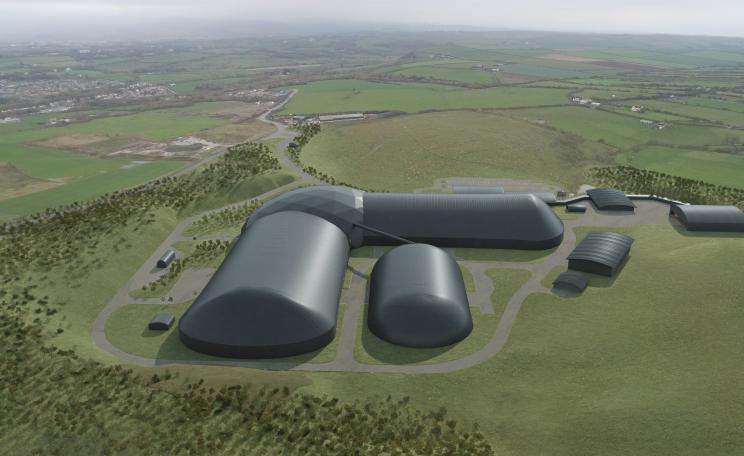Our only real form of influence on the climate crisis in the world is seriously jettisoned by this action.
The UK Government is facing charges of hypocrisy and sending the wrong signals to industry following its decision to green light a new coking coal mine in Cumbria.
Read: Cumbria mine approval 'an appalling decision'
Experts have also questioned the investment in an “1850s technology” to supply coal for steel manufacture as the sector looks to shift to cleaner technology.
The scheme on the edge of Whitehaven in Cumbria, which was approved by the government following a series of delays, is expected to extract nearly 2.8 million tonnes of coal per year for use in steel making, rather than power generation.
Incomprehensible
Environmentalists warn it will create an estimated 400,000 tonnes of emissions a year, and say is hypocritical in the wake of UK efforts on the international stage to urge the world to give up on coal. They want to see investment in green jobs.
Scientists and engineers point to warnings from UK steel companies that they will not be able to use the coal because of its sulphur content, which will mean most of it is exported.
There are also a number of schemes around the world, including in Europe, which are investing in new alternatives to coal use for making steel to cut emissions.
The former government chief scientist, and chair of the independent Climate Crisis Advisory Group Sir David King, labelled the decision as an “incomprehensible act of self-harm”.
He said: “Worldwide there should be no new venture into coal, oil or gas recovery.
Wrong
“This action by a leading developed economy sets exactly the wrong example to the rest of the world.
“Our only real form of influence on the climate crisis in the world is seriously jettisoned by this action.”
Sam Fankhauser, from the Smith School of Enterprise and the Environment, University of Oxford said: “There is a big difference between a short-term increase in fossil fuel use, in response to the energy crisis, and new long-term investment in a coal mine.
“Unless the carbon associated with the mine can be captured and stored, the jobs it creates will be short-lived.”
He said the decision also sends “completely the wrong message” about Britain’s commitment to cut its emissions to “net zero” by 2050 to tackle climate change.
Dirty
“It looks hypocritical in the eyes of low-income countries, whose own fossil fuel ambitions we have repeatedly criticised.”
Prof Stuart Haszeldine, from the School of GeoSciences at University Edinburgh, said: “Opening a coal mine in Cumbria is investing in 1850s technology, and does not look forward to the 2030s low carbon local energy future.
“We have studied the Cumbria coals and it’s clear that these are very high in sulphur and are not wanted by either of the two UK iron and steel makers.
“Steel making in Europe is rapidly changing to use hydrogen, not coal.
“Most, and maybe all, of this coking coal will be exported outside of Europe to escape environmental constraints on its use. England will become a global dirty fuel supplier.”
Confusing
Nick Molho, executive director of the Aldersgate Group, an alliance of business, academics and civil society supporting a sustainable economy, said the decision was “deeply disappointing from an industrial strategy, market signal, environmental and diplomatic perspective”.
He said: “Several steel makers in the UK and globally are now making plans to move away from coal and instead manufacture green steel through cleaner technologies such as electric arc furnaces powered by renewable energy or through hydrogen direct reduction.
“Those are the technologies and globally relevant supply chains that the UK should seek to gain a competitive advantage in and where new and secure jobs can be created across the country and for the long-term.”
He added the move came a year after the UK Government led a campaign to encourage businesses and investors to accelerate their emissions reductions.
“Giving the go-ahead to a new open coal mine in the UK a year later sends a very confusing signal to the business and investment community and is not at all consistent with the actions of a government seeking to de-risk and accelerate investment flows towards low carbon technologies to hit net zero,” he warned.
This Author
Emily Beament is the PA environment correspondent.






